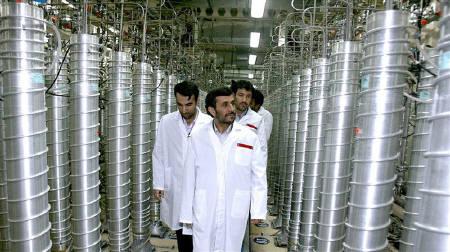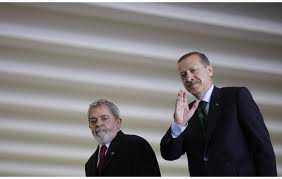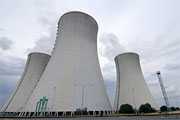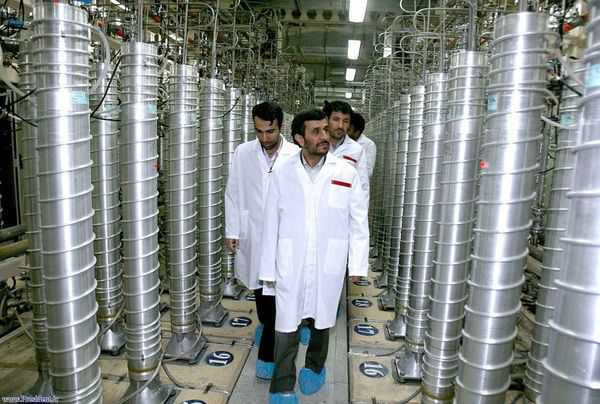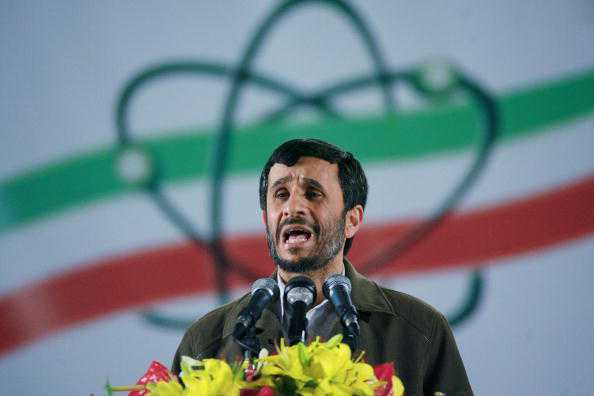
Iran Strike May Set Back Nuke Program at Most Three Years, U.S. Says
Iran: IAEA Nuclear Report a Breakthrough, But at What Cost?
Wurmser: Harsh Response from Iran if Attacked
CIA Director Hayden: Fork in the Road Ahead on Iran’s Nuclear Program
US Mulls Iran Sanctions but Not on Oil, Central Bank
France Warns Iran of “unprecedented” Sanctions
Iran Moved Nuclear Material to Bunker
Iran/Russia: Tehran Dispatches Officials to Moscow to Discuss IAEA Report
How Iran Might Respond to an Attack from Israel or the US
Reactions to IAEA Iran Report
IAEA Says Iran Worked on Nuclear Bomb Design
Russia Warns against Military Strike on Iran
Why Obama Might Save Israel From Nuclear Iran: Jeffrey Goldberg
Israel’s Barak Dismisses Talk of Attacking Iran
Iran: IAEA to Release New Report on Nuclear Program
Has Iran Ended Israel’s Begin Doctrine?
Israel/Iran: Escalating Rhetoric, Leaks Over Iran Attack Plan
How Israel and Iran Shape up Militarily
Israel/Iran: New Reports Israel Planning an Attack on Iran
CIA Director Hayden: Assassination Plot “Absurd But True.”
EU/Iran: EU Sends Mixed Signals to Iran
The EU agreed on Friday to sanction five Iranians over the plot to assassinate the Saudi ambassador to the U.S. . . . EU Foreign Policy Director Catherine Ashton also announced on Friday that multilateral talks with Iran over its nuclear program could soon resume . . . Ashton’s statement was in response to a letter from Iran’s chief nuclear negotiator . . . Iran wants recognition of its right to enrich uranium as a precondition to talks; Aston rejected preconditions . . . the EU’s sanctions decision falls well short of the U.S. decision to sanction the Iranian Central Bank but is still a significant achievement by the 27-member EU . . . the simultaneous offer to engage in nuclear talks was unfortunate since it will overshadow the EU sanctions decision and telegraph to the Iranian leadership that relations with the EU will remain unchanged after the assassination attempt.
Saudis, U.S. Trade Charges with Iran over Plot
Situation Report: Iranian Plot To Kill Saudi Ambassador in DC
Iran/Russia: Start up of Iranian Nuclear Power Plant Delayed Again
Iran announced that the Bushehr nuclear power plant has again been delayed and will miss its August start up target . . . Iran blamed Russia for the delay and attacked Moscow’s honesty about the plant . . . this is at least the second delay this year . . . the Bushehr plant also was reportedly delayed by the mysterious Stuxnet computer virus allegedly created by Israeli or American intelligence agencies . . . delays in the start up of Bushehr probably are a combination of technical problems and incompetence by Iranian plant operators . . . the delays and the high cost of the plant are straining Iran-Russia relations .
Iran: Accelerating Nuclear Weapons Program
Iran takes step toward to weapons-grade uranium enrichment, triples production
Iran plans to triple its production of high-grade uranium and transfer the bulk of its operations from its Natanz to an underground bunker in Fordow, a site kept secret until 2009 . . . Iran’s atomic energy chief Fereydoun Abbasi-Davani announced Tehran’s plans on Wednesday, reportedly in response to U.S. sanctions . . . The decision drew immediate condemnation from western leaders who called it a “provocation” . . . Iran’s shift to 20 percent uranium enrichment demonstrates technological capabilities that experts say make weapons-grade 90 percent enrichment within reach.
Only if You Access it!
-
Pakistan, India Herald New Era of DialogueNovember 10, 2011
-
Iran Strike May Set Back Nuke Program at Most Three Years, U.S. SaysNovember 10, 2011
-
Papademos to Lead Greek Crisis CoalitionNovember 10, 2011
-
Germany to Buy EADS Stake From Daimler to Keep Even With FranceNovember 10, 2011
-
Blasts Hit Egypt’s Gas Pipeline to Israel, JordanNovember 10, 2011
-
China “black Jails” Prompt Fears of Wider Security CrackdownNovember 10, 2011

